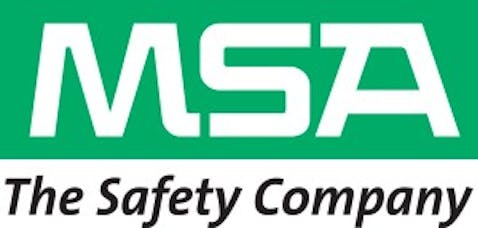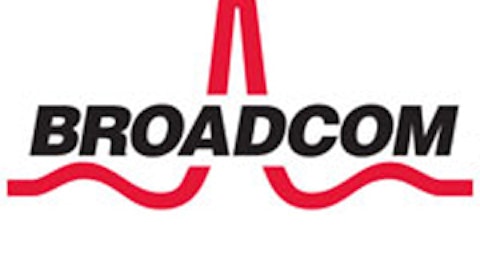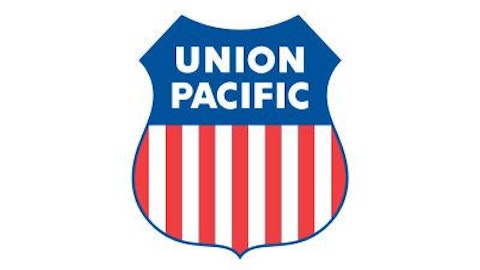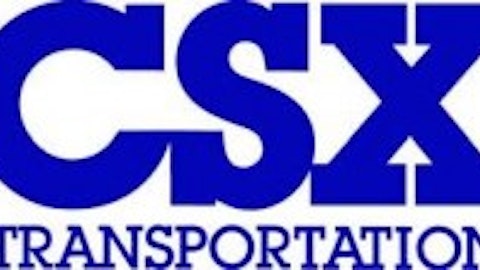After some nice gains since the previous week’s snapshot, the real-money Inflation-Protected Income Growth portfolio closed on Friday with a slightly better than 20.7% return since its inception. Given that the portfolio launched less than eight months ago, that sort of return would ordinarily be cause for an incredible celebration.

In this market, however, it’s just about average. The portfolio’s returns are sitting somewhere between the rise in the S&P 500 index over that same time period and what might have been possible by buying a fund that tracks that index and reinvesting dividends.
Will the good times last?
Of course, during a rising market like the one we’ve been having, it’s pretty easy to stay invested. After all, when darn near everything is moving up, you don’t have to be a genius to participate in the gains. The real question is around what happens when the market drops. As master investor Warren Buffett has said: “Only when the tide goes out do you discover who has been swimming naked.”
The companies in the IPIG portfolio were selected based on their dividend history and prospects, their solid balance sheets, their reasonable valuations, and their fit with reasonable diversification. If the market tanks, those fundamental factors should still hold pretty well true, even if their shares fall with the market just as they’ve risen with it.
Just as the IPIG portfolio hasn’t outperformed the market on the way up, it may not hold up any better than the general market on the way down, either. But because each pick was chosen based on those solid fundamentals at the time of purchase, it will be possible to evaluate each selection on those same measures when the market falls. If nothing else, that should help shed light on which companies have been swimming naked, to make buy more/hold/sell decisions more straightforward.
Make hay while the sun shines
For instance, the biggest gainer in the IPIG portfolio this past week was Air Products & Chemicals, Inc. (NYSE:APD). The company reported so-so earnings but nevertheless leaped skyward after adopting a poison pill on rumors that it may be a target of activist investor Bill Ackman. While the gain is nice, the drivers are dubious, and it suggests a healthy dose of skepticism is warranted.
On the flip side, Texas Instruments Incorporated (NASDAQ:TXN) was the second largest gainer for the IPIG portfolio on the week. While it reported somewhat weaker-than-expected earnings, its shares rose on the news that its product mix is shifting toward higher-margin items, a potential harbinger of strength for the future. When it comes to drivers of a stock’s strength, expanding margins are a far stronger reason for optimism than poison pills and rumors of activist investors.
The third biggest gainer for the IPIG portfolio last week was safety-equipment purveyor Mine Safety Appliances (NYSE:MSA), which also rose on its earnings news. Mine Safety Appliances (NYSE:MSA)’ numbers were pretty strong, once you backed out the impact of currency fluctuations and a divestiture, and the market rewarded the company for those results. Solid results like that are also a decent reason for a company’s stock to rise, but of course, what the company delivers in the future will drive where its stock goes next.
The news isn’t always good
Of course, not every stock gained, and the biggest loss in the IPIG portfolio for the week goes to the two-stock railroad combo of CSX Corporation (NYSE:CSX) and Union Pacific Corporation (NYSE:UNP). Both reported solid earnings that propelled their shares to gains for the prior week’s IPIG review. Still, lousy earnings numbers this week from a competitor on weak coal shipments served as a reminder of how dependent railroads are on that single commodity. That news was enough to drive the IPIG’s railroads down on the week.
Put the good together with the bad, and the IPIG portfolio finished the week up by $389.79 to close the week with a better than 20% return since its inception to wind up like this:
| Company Name | Purchase Date | No. of Shares | Total Investment (Including Commissions) | Current Value, July 26, 2013 |
|---|---|---|---|---|
| United Technologies | 12/10/2012 | 18 | $1,464.82 | $1,889.46 |
| Teva Pharmaceutical | 12/12/2012 | 38 | $1,519.40 | $1,547.74 |
| J.M. Smucker | 12/13/2012 | 17 | $1,483.45 | $1,896.18 |
| Genuine Parts | 12/21/2012 | 23 | $1,476.47 | $1,888.30 |
| Mine Safety Appliances | 12/21/2012 | 36 | $1,504.96 | $1,936.44 |
| Microsoft | 12/26/2012 | 55 | $1,499.15 | $1,739.10 |
| Hasbro | 12/28/2012 | 43 | $1,520.60 | $2,024.44 |
| NV Energy | 12/31/2012 | 84 | $1,504.72 | $1,983.24 |
| United Parcel Service | 1/2/2013 | 20 | $1,524.00 | $1,739.80 |
| Walgreen | 1/4/2013 | 40 | $1,501.80 | $2,032.80 |
| Texas Instruments | 1/7/2013 | 47 | $1,515.70 | $1,838.17 |
| Union Pacific | 1/22/2013 | 6 | $805.42 | $956.40 |
| CSX | 1/22/2013 | 34 | $712.50 | $839.12 |
| McDonald’s | 1/24/2013 | 16 | $1,499.64 | $1,568.48 |
| Becton, Dickinson | 1/31/2013 | 18 | $1,518.64 | $1,858.50 |
| Aflac | 2/5/2013 | 27 | $1,466.35 | $1,649.43 |
| Air Products & Chemicals | 2/11/2013 | 17 | $1,510.99 | $1,770.04 |
| Raytheon | 2/22/2013 | 27 | $1,473.91 | $1,890.27 |
| Emerson Electric | 4/3/2013 | 28 | $1,548.12 | $1,674.40 |
| Wells Fargo | 5/30/2013 | 37 | $1,525.48 | $1,609.87 |
| Kinder Morgan | 6/21/2013 | 42 | $1,518.37 | $1,625.82 |
| Cash | $271.01 | |||
Data from the iPIG portfolio’s brokerage account, as of July 26, 2013.
The article 20% Returns in Less Than Eight Months? originally appeared on Fool.com is written by Chuck Saletta.
Chuck Saletta owns shares of Aflac; Texas Instruments; Microsoft; McDonald’s; Genuine Parts; United Technologies; Wells Fargo; Teva Pharmaceutical; Emerson Electric; Becton, Dickinson; Walgreen; Union Pacific; Hasbro; UPS; CSX; J.M. Smucker; Air Products & Chemicals; Mine Safety Appliances; NV Energy; Raytheon; and Kinder Morgan. The Motley Fool recommends Aflac; Becton, Dickinson; Emerson Electric; Hasbro; Kinder Morgan; McDonald’s; Mine Safety Appliances; UPS; and Wells Fargo and owns shares of Hasbro, Kinder Morgan, McDonald’s, Microsoft, Raytheon, and Wells Fargo.
Copyright © 1995 – 2013 The Motley Fool, LLC. All rights reserved. The Motley Fool has a disclosure policy.




